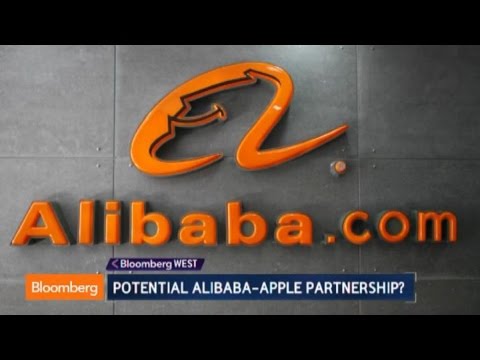Key Acquisitions by Alibaba Under Jack Ma’s Leadership: A Game-Changing Journey
1. Lazada Group: In 2016, Alibaba made a bold move by acquiring a controlling stake in Lazada, a leading e-commerce platform in Southeast Asia. This strategic acquisition allowed Alibaba to tap into the rapidly growing consumer market in the region and gain a strong foothold in countries like Indonesia, Malaysia, Thailand, and the Philippines. With Lazada’s extensive logistics network and established brand, Alibaba reinforced its position as a global e-commerce powerhouse.
2. Youku Tudou: Recognizing the rising demand for online video content, Alibaba acquired Youku Tudou, often referred to as the “YouTube of China,” in 2015. This acquisition enabled Alibaba to leverage Youku Tudou’s vast library of licensed and user-generated content, reaching over 580 million monthly active users. By integrating Youku Tudou’s video platform with its e-commerce ecosystem, Alibaba enhanced its ability to engage and monetize its user base through targeted advertising and content marketing.
3. Ele.me: In 2018, Alibaba acquired Ele.me, a leading online food delivery platform in China. This strategic move allowed Alibaba to expand its presence in the booming food delivery market and compete directly with rivals such as Meituan-Dianping. By integrating Ele.me’s service into its ecosystem, Alibaba unlocked new opportunities for cross-promotion and synergies with its existing businesses, such as Alipay and Hema Fresh. This acquisition further solidified Alibaba’s position as a comprehensive lifestyle platform catering to the evolving needs of Chinese consumers.
4. Intime Retail: In 2017, Alibaba acquired a controlling stake in Intime Retail, a well-established department store and shopping mall operator in China. This acquisition showcased Alibaba’s ambition to bridge the gap between online and offline retail experiences. By leveraging Intime Retail’s extensive physical store network, Alibaba aimed to create immersive shopping experiences through technologies like virtual reality, augmented reality, and personalized recommendations. This strategic move reflected Alibaba’s commitment to reshaping the future of retail and redefining the boundaries between online and offline commerce.
5. South China Morning Post: In 2015, Alibaba acquired the South China Morning Post (SCMP), one of Hong Kong’s most prominent English-language newspapers. This unexpected acquisition signaled Alibaba’s foray into the media industry and its desire to shape public opinion and enhance its global influence. By leveraging SCMP’s extensive network of journalists and readers, Alibaba aimed to provide unbiased and quality journalism, while also leveraging the newspaper’s platform to promote its own interests and narratives.
6. Cainiao Network: Alibaba’s acquisition of a controlling stake in Cainiao Network, a logistics platform, in 2017 showcased the company’s commitment to revolutionizing the global supply chain. By integrating Cainiao’s extensive logistics network with Alibaba’s e-commerce platforms, the company aimed to enhance efficiency, transparency, and speed of deliveries.
Decoding Jack Ma’s Recipe for Success: Unveiling the Key Strategies that Propelled Alibaba to Global Dominance
Decoding Jack Ma’s Recipe for Success: Unveiling the Key Strategies that Propelled Alibaba to Global Dominance
Under Jack Ma’s leadership, Alibaba has made several key acquisitions that have contributed to its global dominance. Here are some of the most notable acquisitions made by Alibaba:
1. Taobao: In 2003, Alibaba acquired Taobao, an online marketplace that quickly became one of the leading e-commerce platforms in China. This acquisition allowed Alibaba to tap into the fast-growing Chinese consumer market and establish a strong presence in the e-commerce industry.
2. Tmall: In 2008, Alibaba acquired Tmall, a business-to-consumer platform that focuses on branded products. This acquisition helped Alibaba expand its reach to international brands and attract a wider range of customers. Tmall has since become one of the largest e-commerce platforms in China.
3. Youku Tudou: In 2016, Alibaba acquired Youku Tudou, a leading online video streaming platform in China. This acquisition allowed Alibaba to enter the digital entertainment industry and compete with other streaming giants like Tencent and Baidu. Youku Tudou has since become a key player in the Chinese online video market.
4. Lazada: In 2016, Alibaba acquired a controlling stake in Lazada, an e-commerce platform that operates in Southeast Asia. This acquisition gave Alibaba access to a rapidly growing consumer market and allowed it to expand its presence beyond China. Lazada has since become one of the top e-commerce platforms in the region.
5. Ele.me: In 2018, Alibaba acquired Ele.me, a leading online food delivery platform in China. This acquisition strengthened Alibaba’s position in the food delivery market and allowed it to compete with rivals like Meituan-Dianping. Ele.me has since become a major player in the Chinese food delivery industry.
These acquisitions have played a crucial role in Alibaba’s rise to global dominance. By strategically expanding its portfolio of businesses and entering new markets, Alibaba has been able to diversify its revenue streams and establish itself as a leader in various industries. With Jack Ma’s visionary leadership, Alibaba continues to pursue growth opportunities and innovate in order to maintain its position as a global powerhouse.
Decoding Alibaba’s Leadership Style: Unveiling the Secrets behind their Success
Decoding Alibaba’s Leadership Style: Unveiling the Secrets behind their Success
Under Jack Ma’s leadership, Alibaba has made several key acquisitions that have played a significant role in the company’s success. These strategic acquisitions have helped Alibaba expand its business and solidify its position as a global e-commerce giant. Here are some of the notable acquisitions made under Jack Ma’s leadership:
1. Taobao: In 2003, Alibaba acquired Taobao, an online marketplace similar to eBay. This acquisition allowed Alibaba to establish a dominant position in the Chinese e-commerce market and compete against its main rival, JD.com. Taobao quickly became one of the most popular online shopping platforms in China, offering a wide range of products at competitive prices.
2. Tmall: In 2008, Alibaba acquired Tmall, a business-to-consumer platform that focuses on branded goods. Tmall provides a trusted and reliable platform for international and domestic brands to sell their products to Chinese consumers. This acquisition further strengthened Alibaba’s position in the e-commerce market and helped attract more high-quality brands to its platform.
3. Ant Financial: In 2011, Alibaba acquired a majority stake in Ant Financial, a financial technology company that operates Alipay, one of the largest mobile payment platforms in China. This acquisition allowed Alibaba to integrate mobile payment services into its e-commerce ecosystem, providing a seamless and convenient payment experience for its customers. Ant Financial has since evolved into an independent company and has become a key player in the global fintech industry.
4. Lazada: In 2016, Alibaba acquired a controlling stake in Lazada, a leading e-commerce platform in Southeast Asia. This acquisition enabled Alibaba to expand its presence in the region and tap into the growing consumer market in Southeast Asia. Lazada operates in multiple countries, including Indonesia, Malaysia, the Philippines, Singapore, Thailand, and Vietnam, and provides a platform for both international and local sellers to reach customers in these markets.
5. Ele.me: In 2018, Alibaba acquired Ele.me, a leading online food delivery platform in China. This acquisition allowed Alibaba to enter the highly competitive food delivery market and strengthen its position in the local services sector. Ele.me operates in hundreds of cities across China and provides a convenient and efficient food delivery service to millions of consumers.
These key acquisitions have not only expanded Alibaba’s business portfolio but also contributed to its overall success. By leveraging the strengths of these acquired companies, Alibaba has been able to offer a comprehensive range of products and services to its customers, enhance its technological capabilities, and strengthen its market position both domestically and internationally.
Unveiling Jack Ma’s Stake: The Extent of Alibaba Ownership Revealed
Unveiling Jack Ma’s Stake: The Extent of Alibaba Ownership Revealed
1. Alibaba’s key acquisitions under Jack Ma’s leadership have played a crucial role in the company’s growth and success. Let’s take a closer look at some of these significant acquisitions:
– Yahoo China: In 2005, Alibaba acquired Yahoo China, which gave them access to a large user base and helped establish Alibaba as a major player in the Chinese e-commerce market. This acquisition also allowed Alibaba to expand its services and enhance its brand recognition.
– UCWeb: In 2014, Alibaba acquired UCWeb, a leading mobile internet software and services provider. This acquisition helped Alibaba strengthen its mobile strategy and gain a strong presence in the mobile browser and app market. It also allowed Alibaba to tap into UCWeb’s extensive user base and mobile technology expertise.
– Youku Tudou: In 2015, Alibaba acquired Youku Tudou, one of China’s largest online video platforms. This acquisition enabled Alibaba to enter the booming online video market and compete with rivals like Tencent and Baidu. It also provided Alibaba with a valuable content distribution platform and enhanced its digital entertainment offerings.
– Ele.me: In 2018, Alibaba acquired the food delivery platform Ele.me. This acquisition allowed Alibaba to further expand its presence in the online food delivery market and compete with rivals like Meituan Dianping. It also synergized with Alibaba’s broader ecosystem, integrating food delivery services into its e-commerce platforms.
2. These acquisitions have not only helped Alibaba diversify its business portfolio but also strengthen its market position. By acquiring established companies in various sectors, Alibaba has been able to leverage their expertise, customer base, and technology to fuel its own growth.
– Alibaba’s acquisitions have allowed the company to expand beyond e-commerce and venture into areas such as mobile internet, online video, and food delivery. This diversification strategy has helped Alibaba stay ahead of the curve and adapt to changing consumer trends.
– Furthermore, these acquisitions have enabled Alibaba to enhance its ecosystem and provide a more comprehensive range of services to its customers. By integrating acquired companies into its platforms, Alibaba has created a seamless user experience and strengthened customer loyalty.
– The acquisitions have also positioned Alibaba as a major player in the global market. By acquiring companies with international reach, Alibaba has been able to expand its presence beyond China and tap into new markets. This global expansion has not only boosted Alibaba’s revenue but also helped promote Chinese brands on a global scale.
In conclusion, under Jack Ma’s leadership, Alibaba has made key acquisitions that have significantly contributed to the company’s growth and success. These acquisitions have allowed Alibaba to diversify its business, strengthen its market position, and expand its global reach. As Alibaba continues to evolve, it will be interesting to see what future acquisitions are in store for the company.
Under Jack Ma’s leadership, Alibaba has made several key acquisitions that have significantly contributed to the company’s growth and expansion. These acquisitions have allowed Alibaba to diversify its business portfolio and strengthen its position in various sectors. Let’s take a look at some of the notable acquisitions made by Alibaba:
**1. Taobao**: One of the most significant acquisitions under Jack Ma’s leadership was the purchase of Taobao in 2003. Taobao is an online shopping platform that has become one of China’s largest e-commerce websites. This acquisition helped Alibaba establish a strong presence in the consumer-to-consumer (C2C) market and laid the foundation for its future success.
**2. Tmall**: In 2008, Alibaba acquired Tmall, an online marketplace that focuses on business-to-consumer (B2C) transactions. Tmall has become one of the leading e-commerce platforms in China, providing a wide range of branded products to consumers. This acquisition allowed Alibaba to tap into the growing demand for branded goods and further expand its e-commerce empire.
**3. Youku Tudou**: In 2015, Alibaba acquired Youku Tudou, a leading online video platform in China. This acquisition enabled Alibaba to enter the digital entertainment industry and compete with other streaming giants like Tencent and Baidu. With Youku Tudou, Alibaba gained access to a vast library of licensed and original content, strengthening its position in the online video market.
**4. Lazada**: In 2016, Alibaba acquired a controlling stake in Lazada, a Southeast Asian e-commerce platform. This acquisition allowed Alibaba to expand its reach beyond China and tap into the rapidly growing Southeast Asian market. Lazada’s extensive logistics network and strong presence in the region have helped Alibaba establish a strong foothold in Southeast Asia.
**5. Ele.me**: In 2018, Alibaba acquired Ele.me, a leading food delivery platform in China. This acquisition aligned with Alibaba’s strategy to expand its presence in the delivery and logistics sector. Ele.me has since been integrated into Alibaba’s ecosystem, enhancing its capabilities in the online food delivery market.
**6. Kaola**: In 2019, Alibaba acquired Kaola, a cross-border e-commerce platform specializing in imported goods. This acquisition allowed Alibaba to strengthen its position in the cross-border e-commerce market and cater to the growing demand for high-quality imported products in China.
Frequently Asked Questions:
**- What prompted Alibaba to acquire these companies?** Alibaba’s acquisitions were driven by its strategic goals of expanding into new markets, diversifying its business portfolio, and strengthening its overall ecosystem. These acquisitions allowed Alibaba to tap into new sectors, reach a wider range of consumers, and enhance its competitiveness in the market.
**- How did these acquisitions benefit Alibaba?** These acquisitions provided Alibaba with access to new customer bases, expanded its product offerings, and strengthened its overall market position.






This article is just glorifying Jack Ma! What about the other key players in Alibabas success?
Jack Mas secret ingredient for success: his pet dragon who handles all negotiations!